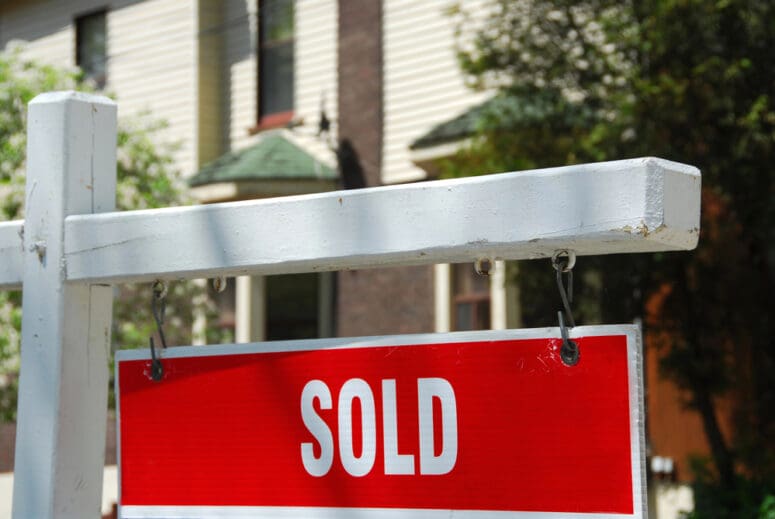What Happens the Week Before Closing on a House?
- Published on
- 8 min read
-
 Richard Haddad Executive EditorClose
Richard Haddad Executive EditorClose Richard Haddad Executive Editor
Richard Haddad Executive EditorRichard Haddad is the executive editor of HomeLight.com. He works with an experienced content team that oversees the company’s blog featuring in-depth articles about the home buying and selling process, homeownership news, home care and design tips, and related real estate trends. Previously, he served as an editor and content producer for World Company, Gannett, and Western News & Info, where he also served as news director and director of internet operations.
As the week before closing on a house approaches, the countdown begins. Whether you’re a buyer eagerly waiting to start a new chapter or a seller preparing to hand over the keys, these seven days can create excitement or anxiety. But what happens the week before closing on a house?
This guide outlines what to expect. From the final walkthrough to managing utilities, we share expert tips to help you be prepared and prevent last-minute surprises.
Home sellers: What happens the week before closing
The final week before closing is a flurry of activity for sellers. For our lists below, we’ll assume the home inspection and appraisal have been completed, and the results were favorable for both the seller and the buyer, allowing the sale to move ahead to closing.
Here’s a final-week checklist of what home sellers need to take care of:
- Complete negotiated repairs: Ensure all agreed-upon repairs are completed to avoid any delays.
- Move out of the house: Plan your move such that the house is vacated on or before the closing day.
- Clean the house: Leave the house in a clean state for the new owners, which is often a requirement.
- Coordinate with utility companies: Arrange for utility services to be transferred out of your name effective from the closing date.
- Pass the final walkthrough: The final walkthrough is the buyer’s last chance to go through the house and ensure everything is in order.
- Attend the closing: Be on time at the closing meeting to sign off on all necessary paperwork.
- Turn over the keys: Hand over the keys to the new owner once all formalities are complete. Don’t forget to leave garage door openers.
- Get paid: Once all financial transactions are settled, you should receive the payment from the sale.
If you’re working with an experienced real estate agent, they will guide you through the week before closing to be certain none of these key steps slip through the cracks.
“When we represent the seller, we have a little checklist that we give them,” says Trevor Heuser, a HomeLight Elite agent serving Austin, Texas. “The checklist contains helpful reminders for the [final] walkthrough, such as making sure all utilities are on, everything is okay inside the house, and the home is empty.”
Homebuyers: What happens the week before closing
For buyers, Heuser says the week leading up to closing is all about dotting the i’s and crossing the t’s — and avoiding pitfalls that can delay the deal. Again, a seasoned agent will keep things moving smoothly.
“My assistant checks in with the lender and title company prior to closing,” Heuser explains. “We have a checklist that we go through as we get within a week just to make sure that the lender has everything that they need on their end in order to fund the deal. They also make sure that the title company has everything figured out ahead of time in terms of operations with the lender.”
Here’s a final-week checklist of what homebuyers need to focus on:
- Final walkthrough: Visit the property to ensure it’s in the agreed condition and that all conditions of the sale are met.
- Review the final closing disclosure: Check the closing disclosure details against your loan estimate. Be certain it matches what you’ve been told and what you expected.
- Respond to requests from the underwriter: Provide any additional documentation your lender needs to finalize the loan.
- Start homeowners insurance policy: Ensure your policy is in effect from the day of closing.
- Set up utilities in your name: Arrange for utilities to be transferred to your name, starting on the closing date.
- Coordinate your move: Organize the logistics of your moving day, aiming for minimal disruption.
- Attend the closing: Be present to sign the paperwork and finalize the purchase.
- Pay for the home, get the keys: Complete your payment and receive the keys to your new home.
Optional: Hire professional cleaners so life in your new home starts with a sparkle.
Heuser says clear and prompt information is vital during the week before closing on a house.
“When we represent the buyer, we make certain there is an open line of communication with the title company, the lender, and the seller,” he says. “We make sure that everyone is on the same page when it comes to the walkthrough, and then we message the agent on the other side.”
Final walkthrough tip: “Make sure that the home is in the same condition it was when you saw it originally, meaning that there’s no damage in the home; no holes in the walls,” Heuser advises. ”Be certain all major systems are working. Flush toilets, turn on the showers, open things, and have them run just to make sure there are no leaks underneath or anything like that.” He adds that buyers should also look for any unaddressed repairs, missing fixtures, or missing or swapped appliances.
What can go wrong at closing?
Closing on a house should be a time of excitement and new beginnings, but it’s also a phase when unexpected issues can emerge. Awareness is key, so here’s a rundown of potential snags that could occur, ensuring both buyers and sellers are better prepared to tackle them.
For sellers, certain hurdles can complicate the process:
- House fails final walkthrough: The buyer may find issues not previously disclosed or repaired.
- Last-minute liens or debts on title: Undiscovered debts can delay the transfer of ownership.
- Property ownership dispute: Challenges to your legal right to sell the property can halt the process.
- Missing or expired ID: Proper identification is required to complete legal documents.
- Buyer changed their mind: While rare, buyers might withdraw, potentially due to loan issues or personal doubts.
Buyers, on the other hand, face a larger set of potential closing potholes:
- Your credit score took a hit: Changes in your financial situation could affect loan approval.
- Loss of employment: Losing your job can jeopardize your mortgage approval.
- Incorrect closing disclosure: Discrepancies in loan terms or fees need to be resolved before proceeding.
- Misspelled or mismatched names on loan documents: Errors in documentation can cause significant delays.
- Lack of funds for closing costs or down payment: Insufficient funds can stop a closing in its tracks.
- Insurance issues: Problems with securing homeowners insurance can delay or derail the process.
- Incorrect routing or account numbers (wiring funds): Mistakes in financial details can lead to misplaced funds.
- Lender can’t meet the promised timeline: Delays from your lender can push back your closing date.
Heuser says the buyer-side list of potential pitfalls is typically longer than the seller-side list.
“The most common thing that comes up will be something to do with the buyer’s financing, whether that’s a change in job status or change in income — or the buyer makes a large purchase and doesn’t qualify,” he explains. “If that’s the case, it’s on the buyer’s side to back out of the contract.”
What NOT to do the week before closing on a house
With the above pitfalls in mind, let’s take a quick look at some things sellers and buyers should not do the week before closing. Here again, the list is longer for buyers, and their missteps are more likely to delay or kill a home sale.
Sellers: ‘Do not do’ list
- Don’t remove sale-included fixtures
- Don’t swap out appliances
- Don’t make unrequested changes
- Don’t break anything
Buyers: ‘Do not do’ list
- Don’t change or quit your job
- Don’t spend your downpayment money
- Don’t make other financed purchases
- Don’t run up excessive credit card debt
- Don’t transfer credit card balances
- Don’t apply for new credit accounts
- Don’t co-sign any loans
- Don’t fall behind on payments
- Don’t change banks or start new accounts
FAQs about closing on a house
What happens at the closing table?
At the closing table, all parties involved in the transaction review and sign the necessary documents to transfer property ownership. This includes settling financial details, such as closing costs and the down payment.
What do I need to bring to closing?
You should bring a government-issued photo ID, the necessary paperwork (such as proof of insurance and the contract), and any required payments in the form of a cashier’s check or wire transfer details.
How long does the closing meeting take?
Typically, a closing meeting can last from an hour to several hours, depending on the complexity of the transaction and the number of documents to be reviewed and signed.
Who will be at the closing event?
Typically, the closing event includes the buyer(s), seller(s), real estate agents, a closing agent (often an attorney or title company representative), and sometimes the lender.
Can the closing date be changed?
Yes, the closing date can be adjusted if both parties agree, often due to financial, legal, or personal reasons.
What if I can’t attend the closing?
If you cannot attend in person, you might be able to arrange a remote closing or grant someone power of attorney to sign on your behalf. New arrangements can also be made if a buyer or seller misses the closing date.
Get expert help for a smooth closing
As you approach the closing date, ensure all documentation is complete and understand the specifics of what you’ll need to bring and sign. Verify the time and location of your closing meeting, and if you are responsible for any closing costs, confirm the amount and form of payment needed.
Whether you’re buying or selling, a top-rated agent can help you successfully navigate your entire real estate journey. HomeLight can connect you to the highest-rated agents in your city. Our Agent Match tool analyzes over 27 million transactions and thousands of reviews to determine which agent is best for you based on your needs.
»Learn more: Closing checklist for sellers
»Learn more: Closing checklist for buyers
Header Image Source: (elenathewise / Depositphotos)


